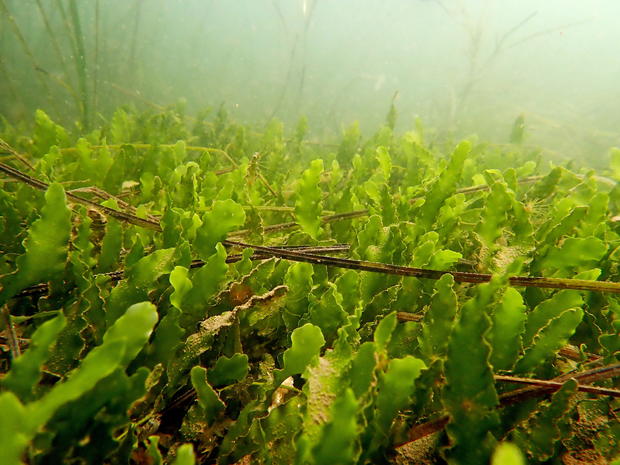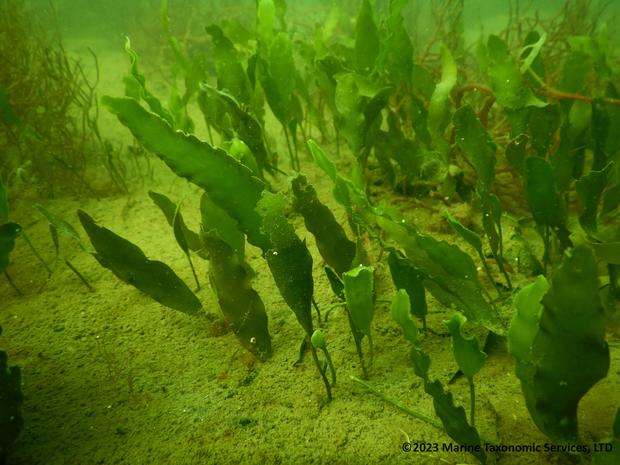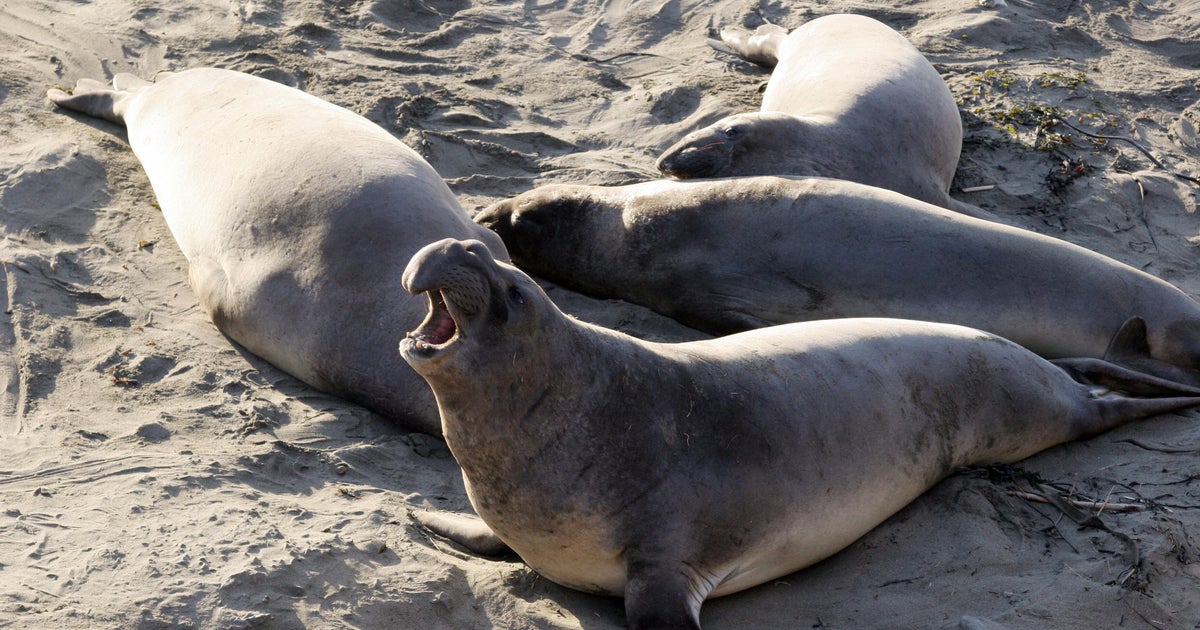Port of San Diego declares emergency after more invasive seaweed found in bay
The Port of San Diego has renewed an emergency declaration meant to help the city fight an invasive algae that has proliferated in its bay.
The algae species, scientifically known as Caulerpa prolifera, was first spotted in the San Diego Bay in September, according to a news release from the port. The algae grows and reproduces rapidly, "choking out native seaweeds and seagrasses," according to the port, and causing a loss of habitat for marine life.
In the bay, the species most at risk are eelgrass, a type of plant that many ocean species use as a habitat, and the fish, birds and green sea turtles that use that eelgrass as a source of food and shelter. In addition to its role as a habitat and nursery, eelgrass is a natural water filter that helps maintain good air and water quality.
About 2,600 acres of eelgrass grow in the bay, according to the port.
As of now, about 11,200 square feet of Caulerpa have been found in the San Diego Bay, including near the Coronado Cays and the San Diego Bay National Wildlife Refuge. Officials have not confirmed the source of the infestation, but said in the news release that it was most likely caused by someone emptying a saltwater aquarium into the bay, since the seaweed is a "popular and common saltwater aquarium plant."
Possessing Caulerpa in California is illegal, as is selling and transporting it. Officials said anyone who owns or sells saltwater aquariums should not use Caulerpa or dump aquariums into state waters. Aquariums should also not be emptied into street or storm drains, since these systems often discharge into the ocean.
Once in a waterway, the seaweed can "rapidly and aggressively expand from contact with vessels, fishing and even tidal exchanges," officials said. Regular visitors have been asked to avoid the infested areas to avoid spreading the invasive plant. The seaweed does not pose a risk to humans, but boaters, divers and anglers who visit the bay should watch for Caulerpa, inspect their gear and supplies for the plant, and report sightings to the California Department of Fish and Wildlife.
Trained divers have been responding to the infestation in the San Diego Bay by covering known patches with a "sealed barrier meant to kill the algae by blocking it from light, oxygen and tidal circulation," officials said. Over $900,000 has been committed to cover the costs of searching for the plant and eradicating it from the bay, officials said, with an additional $2.2 million in funding pending from state and federal sources. The emergency declaration is meant to help officials secure additional grant funding for surveillance, control measures and monitoring.
Frank Urtasun, chairman of the Port of San Diego Board of Port Commissioners, issued a warning about an outbreak of the seaweed in the Mediterranean Sea in the 1980s. He said the Caulerpa infestation there "caused millions of dollars in losses to tourism and fishing industries because it was not contained," and said that limiting the infestation in the San Diego Bay was of paramount importance.
"It is absolutely critical that we find and remove or cover every little piece of Caulerpa as quickly as possible to preserve our bay's strong and healthy ecosystem," said Urtasun in the release.
While this is the first discovery of Caulerpa in the San Diego Bay, it's far from the first time the algae has been seen in California. The state has monitored for the plant since the early 2000s, officials said. A species of Caulerpa infested part of the state's Huntington Harbour and Aqua Hedionda Lagoon in Carlsbad around that time. Newport Bay has been battling an infestation of the plant since 2021, officials said.





